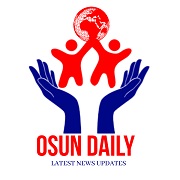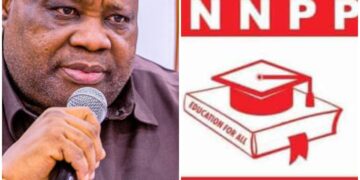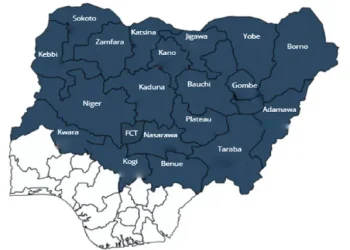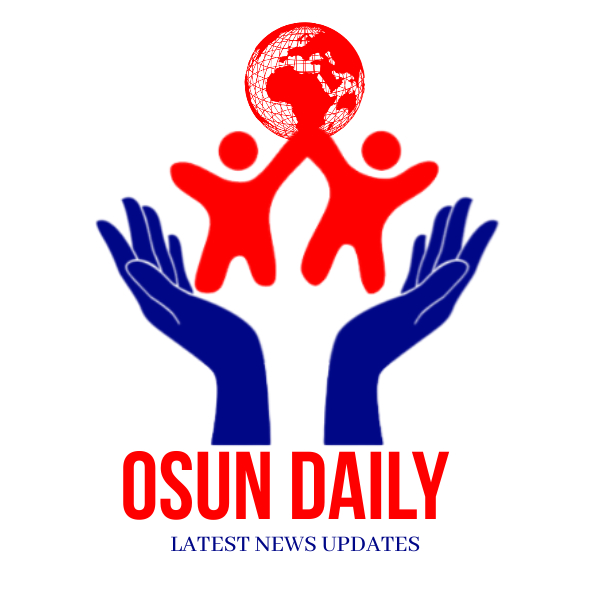By Niyi Akinnaso
One of the primary functions of party leaders in a democracy is to ensure the emergence of candidates for political positions, who would uphold party principles, respect its constitution, and effectively implement its agenda. The leaders of all political parties which fielded candidates for the Osun governorship election to be held on Saturday, September 22, 2018, engaged in various manoeuvres in performing this essential function. Some arranged elaborate party primaries, while others endorsed so-called consensus candidates. In yet other cases, candidates were swapped in the last minute to accommodate party switchers.
Gboyega Oyetola emerged as the governorship candidate of the All Progressives Congress after an elaborate direct (open) primary. Ìlérí Olúwa (God’s promise) is the inspirational slogan of his governorship campaign. How he came about the slogan is a story for another day; let it suffice that he believes strongly in its divine inspiration.
Oyetola is one of 48 or so candidates for the Osun governorship race. However, it is generally believed that there are only five top contenders, namely, Oyetola (APC); Demola Adeleke (Peoples Democratic Party); Iyiola Omisore (Social Democratic Party); Moshood Adeoti (Action Democratic Party); and Fatai Akinbade (African Democratic Congress). As the race moves nearer and nearer to the finish line, close observers would argue that it is between the candidates of APC and PDP, because of the profiles of the two political parties and their candidates.
I know all five top contenders. I am familiar with their backgrounds, qualifications, and political experiences. I also have closely monitored their campaigns from the early days of the party primaries to the ongoing march toward election day. Moreover, I was involved in three successive opinion polls, which tracked the campaigns and the voters’ reactions and voting decisions to date.
To be sure, each candidate has his strengths and weaknesses; but Oyetola is far ahead of the field in several respects. First, he has the most relevant qualifications and experience to be the Governor of Osun State at this time in the state’s history. Of the top five candidates, he is the only one with university credentials and broad experiences in financial management as well as business and public administration, having attained his Bachelor’s and Masters degrees in these fields from the University of Lagos.
These are extremely relevant qualifications, given the financial challenges facing the state. Armed with these qualifications, he had served in top management positions in various insurance companies before establishing his own company, which he successfully managed with handsome returns until he was appointed the Chief of Staff to the outgoing governor, Rauf Aregbesola. It was in this position that he brought his financial expertise to bear on steering the state through these austere times.
He was involved in negotiating the payment of modulated salaries by which workers on levels 1-7 (a whopping 72 per cent of the workforce) got full salaries, while workers on levels 8-11 (20 per cent of the workforce) were paid 75 per cent of their salaries. The top echelon of workers on level 12 upwards, which constitutes only 8 per cent of the workforce, got 50 per cent for their salaries. Oyetola was also involved in the arrangements for the recent payment of full salaries and arrears as well as pension for all affected workers. As he indicated on Sunday, September 16, during the governorship debate, he is committed to the continued payment of full salaries, if elected.
Second, Oyetola’s eight-year service as the Chief of Staff puts him in the best position to sustain the developmental strides of the government. In particular, his involvement in implementing the government’s Six-Point Integral Action Plan puts him in good stead to sustain it. Today, the plan, which is ongoing across various sectors, includes massive development of township roads, including the ring road around Osogbo, and the Rural Access and Mobility Project, partly funded by the World Bank and the French Development Agency.
Particularly notable in the plan is the focus on improving the school’s educational attainments, including the restructuring and reclassification of primary and secondary schools in order to facilitate the free feeding of vulnerable children in the elementary grades, while preserving the country’s 6-3-3-4 system of education; the provision of free meals and free school uniforms; the development of Centres of Excellence in the primary and secondary education system through the construction of mega schools, while also renovating and preserving existing school buildings where necessary; and capacity building workshops for teachers, especially in English Language and Mathematics.
Other aspects of the plan include a focus on agriculture; improved healthcare facilities and delivery; social welfare for the vulnerable elderly; the provision of recreational facilities, such as Mandela Park in Osogbo; and a vigorous drive to improve the state’s Internally Generated Revenue.
The sustainability of these projects is crucial to the development of Osun State, which is presently considered as (a) one of the fastest growing state economies in the country and (b) the best state in the provision of social welfare programmes. Unlike arm-chair columnists, brown-envelope journalists, and expatriate citizens of Osun who hardly go back home, permanent residents of Osun state, in various opinion polls, have adjudged Aregbesola as the most achieving Governor in the state’s history as a result of the successful implementation of the Integral Action Plan.
Oyetola is the only candidate who campaigned on consolidating and sustaining this plan, while others have vowed to disrupt it, beginning with verbal disruption through misrepresentation and outright falsehoods. To be sure, there are holes in the plan, which need to be filled, just as there are necessary modifications in the light of current financial realities. Oyetola acknowledges these gaps and plans to take appropriate measures to fill them.
Third, Oyetola is a solid, reliable, and loyal individual, endowed with enviable temperament and noble mien. He confronts difficult situations with a muted smile and then goes on to do the right thing. He certainly is more of a doer than a talker. His loyalty to courses has been demonstrated times without number. For example, he is the only one among the top five contenders who has never switched political parties. Rather, he has consistently aligned with the progressive trajectory of Alliance for Democracy, Action Congress, Action Congress of Nigeria, and now APC. He was never caught or even suspected of wavering or aligning with the opposition or working against the party’s interest. No wonder he earned the accolades of his colleagues and his boss as the most loyal party man, who stood by party principles and agenda, where others wavered.
Oyetola might not have displayed all of these qualities during the governorship debate last Sunday. In my own assessment, there was no flyer in that debate, perhaps due to the pressure of the moment. Nevertheless, Oyetola carried the day in demeanour, poise, and truthfulness. As he has stood firmly with his party and the government he faithfully served, he stood his ground amiably during the debate. He was sincere enough to avoid providing false information, when pressed for figures he did not have at his fingertips, unlike Omisore who hardly made a truthful statement throughout the debate.
It is for the above reasons and more that I follow the tradition of civilized journalism in endorsing Oyetola as the next governor of the State of Osun.
Professor Niyi Akinnaso lives in and writes from Akure

















